
The Rutles were a rock band that performed visual and aural pastiches and parodies of the Beatles. This originally fictional band, created by Eric Idle and Neil Innes for a mid-1970s BBC television comedy programme, toured and recorded, releasing two albums that included two UK chart hits.
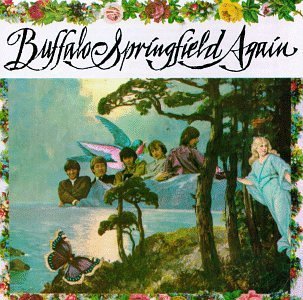
Buffalo Springfield Again is the second album by Buffalo Springfield, released on Atco Records in November 1967. It peaked at #44 on the Billboard 200. In 2003, the album was ranked number 188 on Rolling Stone magazine's list of the 500 greatest albums of all time, maintaining the rating in a 2012 revised list. The album was included in Robert Christgau's "Basic Record Library" of 1950s and 1960s recordings—published in Christgau's Record Guide: Rock Albums of the Seventies (1981)—and in Robert Dimery's 1001 Albums You Must Hear Before You Die. It was voted number 165 in Colin Larkin's All Time Top 1000 Albums in 2000.
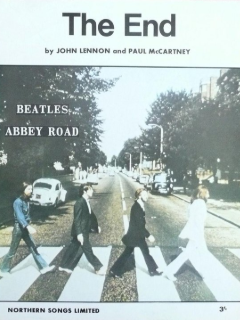
"The End" is a song by the English rock band the Beatles from their 1969 album Abbey Road. It was composed by Paul McCartney and credited to Lennon–McCartney. It was the last song recorded collectively by all four Beatles, and is the final song of the medley that constitutes the majority of side two of the album. The song features one of the few drum solos recorded by Ringo Starr.

Lionel Richie is the eponymous debut solo studio album by American singer Lionel Richie, released on October 6, 1982, on Motown Records. It was recorded and released while Richie was still a member of the Commodores; he left the group shortly after the album's release. The first single from the album, "Truly", topped the Billboard Hot 100. Follow-up single "You Are" reached number four, and "My Love" reached number five. The album was also a hit, reaching number one on the Cashbox albums chart on December 11, 1982.

Dancing on the Ceiling is the third solo studio album by American singer Lionel Richie, released on August 5, 1986. The album was originally to be titled Say You, Say Me, after the Academy Award-winning track of the same name, but it was renamed to a different track's title after Richie rewrote several songs on the album. The album was released to generally positive reviews and it made No. 1 on the US Billboard 200 chart, selling 4 million copies. Following this album's release, Richie went on a long hiatus, not releasing an album of entirely new material for another ten years.
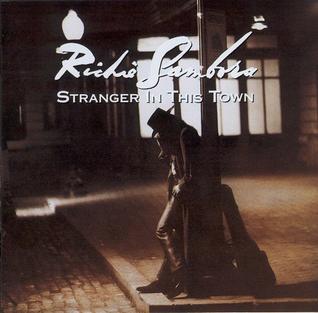
Stranger in This Town is the first solo studio album by Richie Sambora, the guitarist from the New Jersey band Bon Jovi. The album was released in 1991, while Bon Jovi was on a 17-month hiatus. Jon Bon Jovi also released a solo album, Blaze of Glory (1990), during this period.

Undiscovered Soul is the second solo studio album from Richie Sambora the guitarist from New Jersey band Bon Jovi. The album was released on February 23, 1998 and is more experimental than his earlier release Stranger in This Town. The album was produced by Don Was.
"We're Gonna Groove" is a song written by soul artist Ben E. King and later co-credited to James Bethea. In 1964, it was released as the single B-side of King's rendition of "What Now My Love".
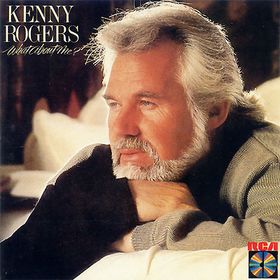
What About Me? is the sixteenth studio album by Kenny Rogers, released by RCA Records.
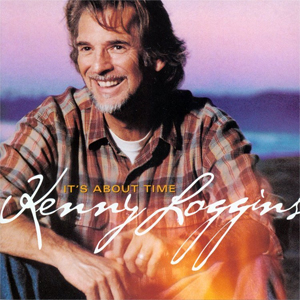
It's About Time is the twelfth studio album released by Kenny Loggins. Released in 2003, it was his first non-Christmas, non-children's album since 1997's The Unimaginable Life as well as his first following termination from Columbia Records while working on the album. Besides Loggins, several other noteworthy musicians co-wrote and performed on the album. These include frequent Loggins cohort Michael McDonald, as well as fellow soft-rocker Richard Marx and country singer Clint Black.
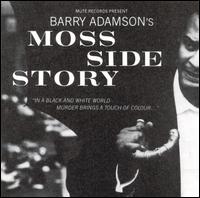
Moss Side Story is the debut album of British musician Barry Adamson released in 1989. The album is a concept album, a soundtrack album to a non-existent crime film.

"A Hazy Shade of Winter" is a song by American music duo Simon & Garfunkel, released on October 22, 1966, initially as a stand-alone single, but subsequently included on the duo's fourth studio album, Bookends (1968). It peaked at number 13 on the Billboard Hot 100.
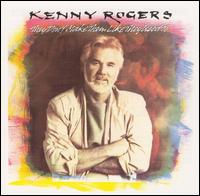
They Don't Make Them Like They Used To is the nineteenth studio album by country superstar Kenny Rogers.
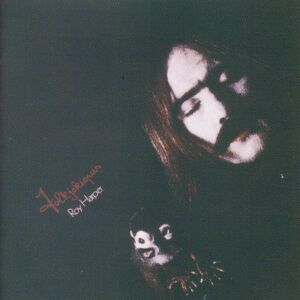
Folkjokeopus is the third album issued by English folk/rock singer-songwriter and guitarist Roy Harper. It was produced by Shel Talmy and was first released in 1969 by Liberty Records.

Endless Love: Original Motion Picture Soundtrack is the soundtrack album to the film of the same name. The album was released worldwide by Mercury Records and PolyGram in 1981.

Share Your Love is the eleventh studio album by country singer Kenny Rogers, released in 1981. Produced by Lionel Richie, it is also Rogers' first with Liberty Records besides his Greatest Hits album. The album has sold nine million copies worldwide.

Love Will Turn You Around is the thirteenth studio album by Kenny Rogers, released in 1982.

The Stone Poneys is the debut studio album by the Stone Poneys; other than an early single of "So Fine" that was produced by Mike Curb in 1965, this album marks the first official recordings by Linda Ronstadt. Whether intended or not, the front cover photo appears to show the band as a more modern version of Peter, Paul and Mary with several of the songs sung in the same three-part harmony.

Taking Off is the second solo album by Neil Innes and was released in 1977.

"Nowadays Clancy Can't Even Sing" is a song by the American folk rock band Buffalo Springfield, released as the group's debut single in 1966. Neil Young wrote the song in Yorkville in 1965 shortly after returning from a series of performances in Toronto, during a period when his bid at a solo career had been met with little positive response. The lyrics reflect metaphorically on Young's frustration toward his stalled career in music, and was inspired by Ross "Clancy" Smith, an aberrant classmate who incited awe in his school. Commentators recognize "Nowadays Clancy Can't Even Sing" as one of Buffalo Springfield's signature songs, as well as a milestone in Young's progression as a songwriter.


















